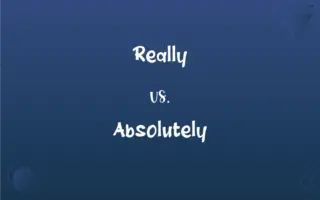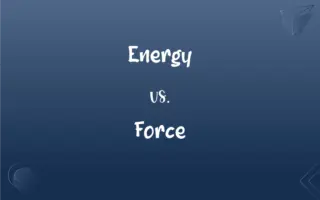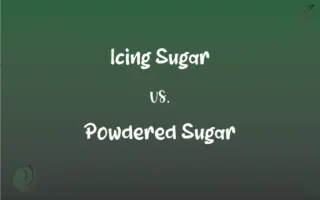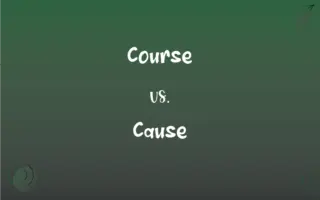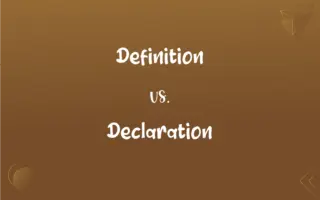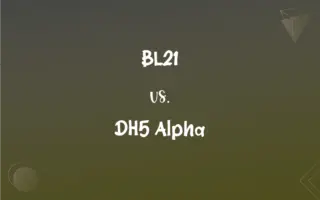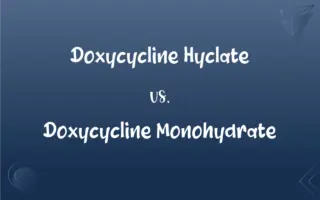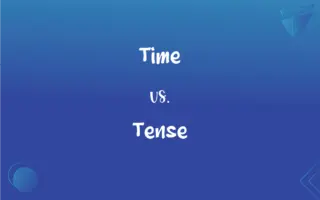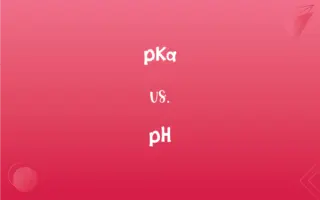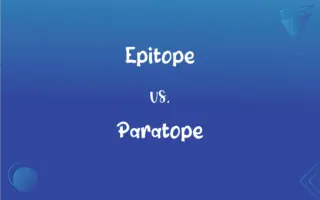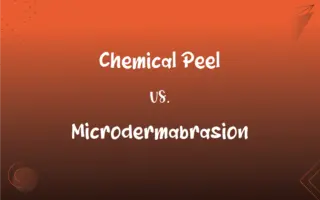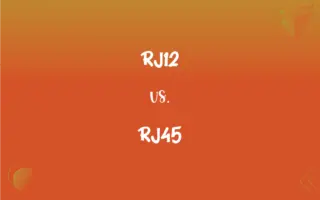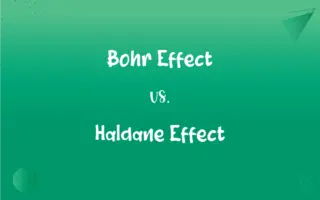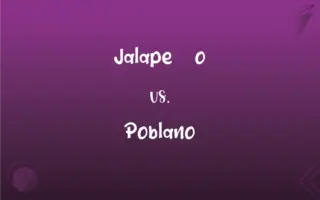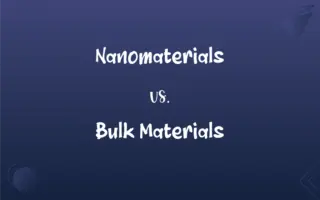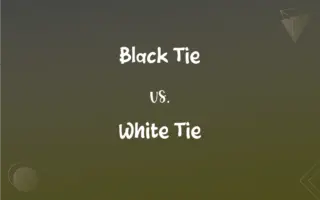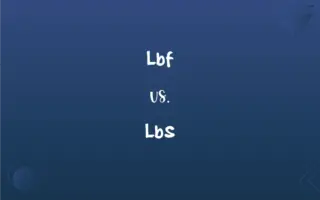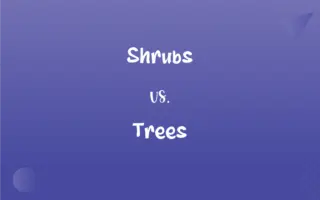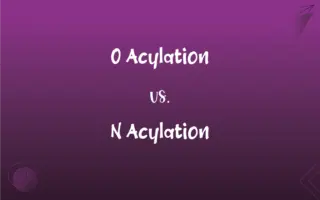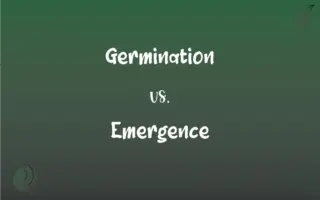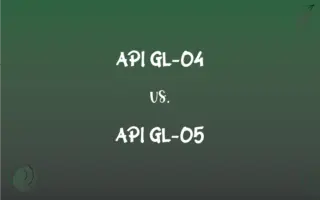Derivation vs. Conjugate: What's the Difference?
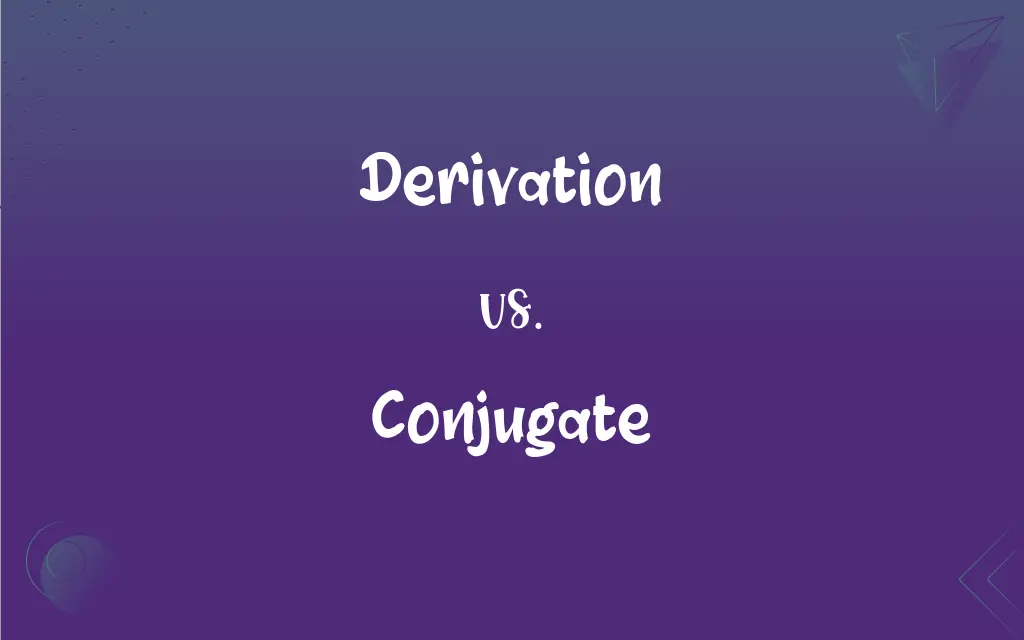
Derivation and Conjugate Definitions
Derivation
The act or process of deriving.
Conjugate
(Grammar) To inflect (a verb) in its forms for distinctions such as number, person, voice, mood, and tense.
Derivation
The state or fact of being derived; origination
A custom of recent derivation.
Conjugate
To join together.
Derivation
Something derived; a derivative.
ADVERTISEMENT
Conjugate
(Biology) To undergo conjugation.
Derivation
The form or source from which something is derived; an origin.
Conjugate
(Grammar) To be inflected.
Derivation
The historical origin and development of a word; an etymology.
Conjugate
Joined together, especially in a pair or pairs; coupled.
ADVERTISEMENT
Derivation
The process by which words are formed from existing words or bases by adding affixes, as singer from sing or undo from do, by changing the shape of the word or base, as song from sing, or by adding an affix and changing the pronunciation of the word or base, as electricity from electric.
Conjugate
Mathematics & Physics Inversely or oppositely related with respect to one of a group of otherwise identical properties, especially designating either or both of a pair of complex numbers differing only in the sign of the imaginary term.
Derivation
In generative linguistics, the generation of a linguistic structure through an ordered or partially ordered series of operations on other structures, such as the creation of a surface structure from a deep structure, or of a complex word from its morphological components.
Conjugate
(Linguistics) Derived from a common source, such as the words foul and filth.
Derivation
The formal description of the process of such generation.
Conjugate
(Chemistry) Conjugated.
Derivation
Logic & Mathematics A logical or mathematical process indicating through a sequence of statements that a result such as a theorem or a formula necessarily follows from the initial assumptions.
Conjugate
Mathematics & Physics Any of a set of numbers that satisfy the same irreducible polynomial.
Derivation
A leading or drawing off of water from a stream or source.
Conjugate
(Chemistry) A chemical compound that has been formed by the joining of two or more compounds.
Derivation
The act of receiving anything from a source; the act of procuring an effect from a cause, means, or condition, as profits from capital, conclusions or opinions from evidence.
Conjugate
To inflect (a verb) for each person, in order, for one or more tenses; to list or recite its principal parts.
In English, the verb 'to be' is conjugated as follows: 'I am', 'you are', 'he/she/it is', 'we are', 'you are', 'they are'.
Derivation
The act of tracing origin or descent.
The derivation of a word from an Indo-European root
Conjugate
(mathematics) To multiply on the left by one element and on the right by its inverse.
Derivation
(grammar) Forming a new word by changing the base of another word or by adding affixes to it.
Conjugate
(rare) To join together, to unite; to juxtapose.
Derivation
The state or method of being derived; the relation of origin when established or asserted.
Conjugate
To temporarily fuse, exchanging or transferring DNA.
Derivation
That from which a thing is derived.
Conjugate
Any entity formed by joining two or more smaller entities together.
Derivation
That which is derived; a derivative; a deduction.
Conjugate
A complex conjugate.
Derivation
(mathematics) The operation of deducing one function from another according to a fixed definition, referred to as derivation or differentiation; this is the inverse operation to integration.
Conjugate
(algebra) More generally, any of a set of irrational or complex numbers that are zeros of the same polynomial with integral coefficients.
Derivation
(medicine) A drawing of humors or fluids from one part of the body to another, to relieve or lessen a morbid process.
Conjugate
Given a field extension L / K and an element α ∈ L, any other element β ∈ L that is another root of the minimal polynomial of α over K.
Derivation
A leading or drawing off of water from a stream or source.
Conjugate
(mathematics) An explementary angle.
Derivation
The act of receiving anything from a source; the act of procuring an effect from a cause, means, or condition, as profits from capital, conclusions or opinions from evidence.
As touching traditional communication, . . . I do not doubt but many of those truths have had the help of that derivation.
Conjugate
(grammar) A word agreeing in derivation with another word, and therefore generally resembling it in meaning.
Derivation
The act of tracing origin or descent, as in grammar or genealogy; as, the derivation of a word from an Aryan root.
Conjugate
(immunology) A weak and a strong antigen covalently linked together
Derivation
The state or method of being derived; the relation of origin when established or asserted.
Conjugate
United in pairs; yoked together; coupled.
Derivation
That from which a thing is derived.
Conjugate
(botany) In single pairs; coupled.
Derivation
That which is derived; a derivative; a deduction.
From the Euphrates into an artificial derivation of that river.
Conjugate
(chemistry) Containing two or more radicals supposed to act the part of a single one.
Derivation
The operation of deducing one function from another according to some fixed law, called the law of derivation, as the operation of differentiation or of integration.
Conjugate
(grammar) Agreeing in derivation and radical signification; said of words.
Derivation
A drawing of humors or fluids from one part of the body to another, to relieve or lessen a morbid process.
Conjugate
(math) Presenting themselves simultaneously and having reciprocal properties; said of quantities, points, lines, axes, curves, etc.
Derivation
The formation of a word from its more original or radical elements; also, a statement of the origin and history of a word.
Conjugate
United in pairs; yoked together; coupled.
Derivation
The source from which something derives (i.e. comes or issues);
He prefers shoes of Italian derivation
Conjugate
In single pairs; coupled.
Derivation
(historical linguistics) an explanation of the historical origins of a word or phrase
Conjugate
Containing two or more compounds or radicals supposed to act the part of a single one.
Derivation
A line of reasoning that shows how a conclusion follows logically from accepted propositions
Conjugate
Agreeing in derivation and radical signification; - said of words.
Derivation
(descriptive linguistics) the process whereby new words are formed from existing words or bases by affixation: `singer' from `sing'; `undo' from `do'
Conjugate
Presenting themselves simultaneously and having reciprocal properties; - frequently used in pure and applied mathematics with reference to two quantities, points, lines, axes, curves, etc.
Derivation
Inherited properties shared with others of your bloodline
Conjugate
A word agreeing in derivation with another word, and therefore generally resembling it in signification.
We have learned, in logic, that conjugates are sometimes in name only, and not in deed.
Derivation
Drawing of fluid or inflammation away from a diseased part of the body
Conjugate
A complex compound formed from the non-covalent union of two other comounds, behaving as a single compound.
Derivation
Drawing off water from its main channel as for irrigation
Conjugate
To unite in marriage; to join.
Conjugate
To inflect (a verb), or give in order the forms which it assumes in its several voices, moods, tenses, numbers, and persons.
Conjugate
To unite in a kind of sexual union, as two or more cells or individuals among the more simple plants and animals.
Conjugate
A mixture of two partially miscible liquids A and B produces two conjugate solutions: one of A in B and another of B in A
Conjugate
Unite chemically so that the product is easily broken down into the original compounds
Conjugate
Add inflections showing person, number, gender, tense, aspect, etc.;
Conjugate the verb
Conjugate
Undergo conjugation
Conjugate
Joined together especially in a pair or pairs
Conjugate
Of a pinnate leaflet; having only one pair of leaflets
Conjugate
Formed by the union of two compounds;
A conjugated protein
Conjugate
Of an organic compound; containing two or more double bonds each separated from the other by a single bond

